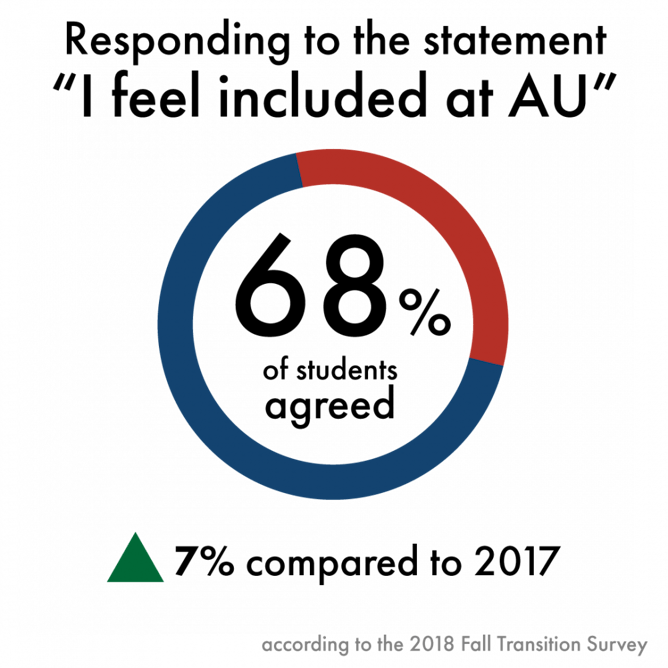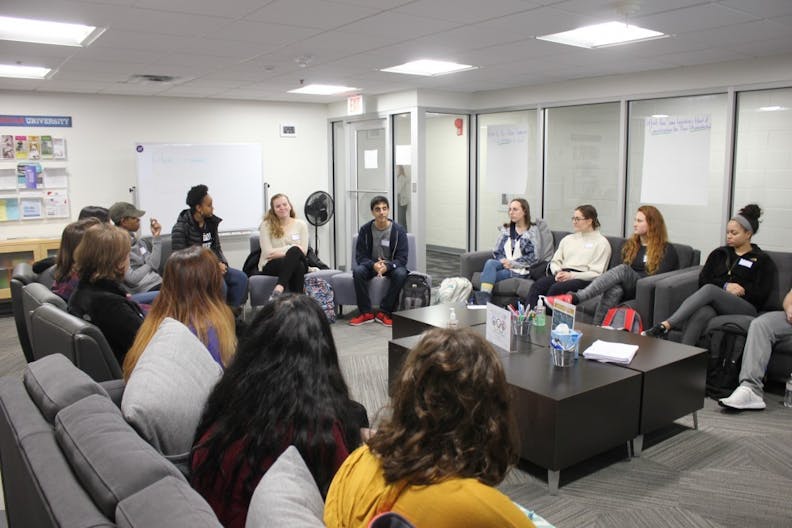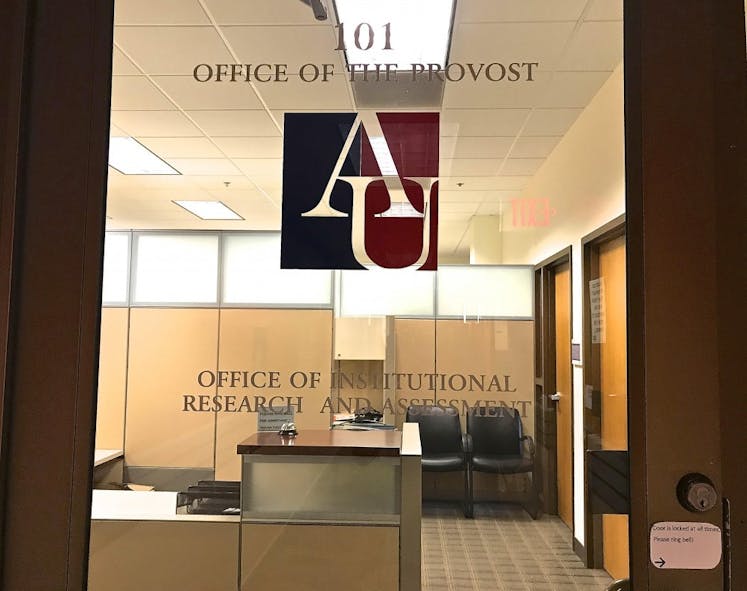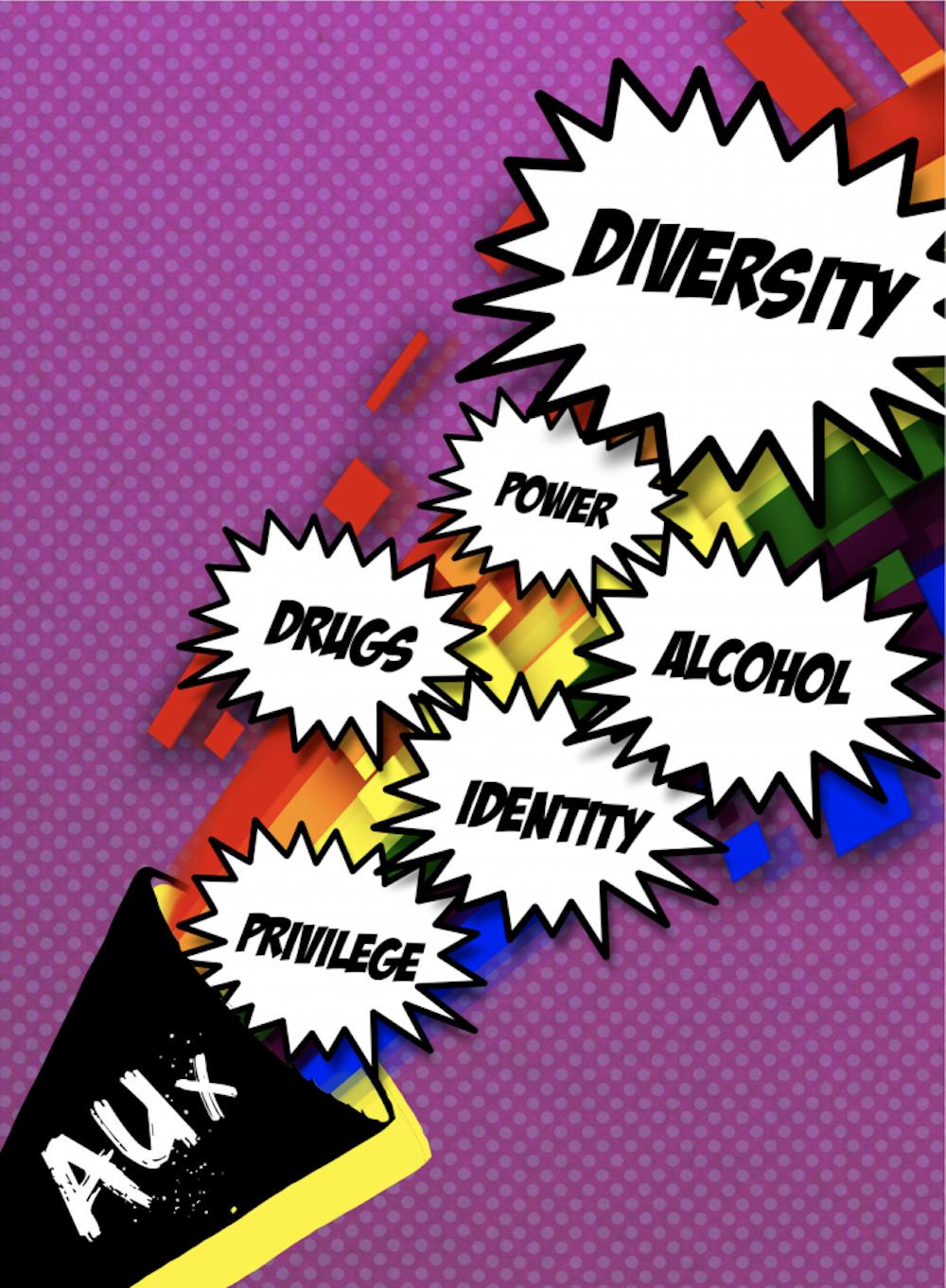When junior Yazan Hanouneh came to AU in the fall of 2016, he realized he was missing something from his transition from high school to college. When friends told him about the pilot course of AU Experience, or AUx, for first-year students, he knew he wanted to be part of it.
“The goal seemed to kind of fill in the gaps of what I was missing in college and provided me with an opportunity to do something for the AU community to help bring that goal to fruition,” Hanouneh said.
While it was already too late for him to join the class as a student, he eventually became a peer facilitator, helping freshmen adapt to college by serving as a mentor inside and outside of the classroom.
Hanouneh, now the director of the Kennedy Political Union, is not the only one who has voiced concern that first-year students need guidance when adjusting to AU’s campus. Administrators and faculty members said the AUx course is important in teaching students skills that will be crucial in a changing world.
“All the classes students will take later in their college career, definitely in grad school, law school and especially in the workforce will require depth of thought and analytical skills to build expertise and make important decisions,” Aja Simpson Zulfiqar, an AUx instructor, said. “Honing those skills now can really help and prepare students for the future, no matter what they do.”

While faculty and officials involved in the program are optimistic about what it can achieve, the implementation of AUx has come with growing pains and student criticism in the year since it became mandatory for all first-year students.
“I think the intention is there to be a good transition class, but I think the purpose of the class is to be a transition class for kids who haven’t experienced diversity, who are new to living in a city or who are new to attempting to navigate their own privilege,” freshman Emma Lovato said. “While there have been tidbits that I’ve found helpful or insightful, this class is kind of just a waste of my time.”
The history and curriculum of AUx
AUx was fully implemented this year with the ushering in of the new AU Core Curriculum. The full-year course is broken into AUx 1 and AUx 2. This is meant to help students transition from high school to college while discussing topics such as structural inequalities, race and freedom of expression.
Fanta Aw, the University’s vice president of campus life and inclusive excellence, said AUx was created as part of the Reinventing the Student Experience (RiSE) initiative, which sets out to analyze student support resources and uses that analysis to devise a new model for supporting students.
Administrators had also been on the receiving end of outrage and criticism from students of color about AU’s campus climate for years after a series of racist incidents targeted black students and other minority groups. Several student leaders pushed for more educational programs surrounding race and identity at AU.
“We had done a lot of listening and a lot of data gathering from students about what their lived experiences were on campus,” Aw said. “[It helped in] understanding how do we help students come for the intellectual sort of endeavor but also for the social development as well.”
Before the University enrolled all first-year students in the course, AUx went through a two year pilot phase starting in the fall of 2016. Through the pilot program, first-year students could opt into taking the class.
“From 2015 to the present, each semester has gone under some revision in some small or large part based on feedback received and what is working for the campus community and different groups,” said Stef Woods, the faculty director of AUx 1.
AUx 1, which is taught during the fall semester, helps students physically and mentally transition to college, while AUx 2, taught in the spring, focuses on creating a space for civil discourse about structural inequalities.
The curriculum creators agreed that learning about campus resources is the most valuable topic addressed in AUx 1 for students. The resources discussed include the Counseling Center, the Academic Support and Access Center and more.
“Over eight semesters at AU, statistically either [students] will be using these resources or they will be recommending them to their closest friends on campus,” Woods said.
Topics such as freedom of expression, diversity and privilege are further expanded upon when students enter AUx 2. Jessica Waters, the dean of undergraduate education, said students are encouraged to immerse themselves fully into the sometimes uncomfortable conversations.
“I think students come with wildly different lived experiences,” Waters said. “They come with wildly different exposure to the academic study of things like power, privilege, race and inequality.”
Amanda Taylor, AU’s assistant vice president of diversity, equity and inclusion and a council member for AUx 2, said both courses are “planting the seeds” for skills and knowledge that not only need to be successful on a college campus but also in the world.
Izzi Stern, the AUx program director, added that as a result of AUx 2, students have an increased awareness of diversity and inclusion efforts on campus.
“In particular, I’m thinking about the campus involvement assignment we had in AUx 1 and the range of programs, events and lectures that students went to for that one assignment,” Stern said. “This assignment took students outside of their comfort zone. They got to engage with new individuals on campus, meet new peers and experience something new.”

Petition to change or end AUx earned over 200 signatures
While administrators and instructors maintain that AUx plays an important role in informing students about campus life, some freshmen say the course is not necessary and causes more stress during their first academic year at AU.
Some students took to social media to speak about their concerns about the course. The conversation came to a head last fall when a petition titled “Students Against AUx” was shared on social media, with over 200 students signing the petition in hopes that AU would reconsider some of the course requirements.
“It takes up time we could be using to take classes that are necessary for our major or classes that peak our interests,” the petition’s anonymous creator wrote. “This class should be a pass/fail at the very least and should not have to meet every week.”
Hanouneh said he believed the petition was short-sighted because the students who made it ignored the needs of underprivileged students who didn’t have the resources or support when transitioning to AU. Only about 10 percent of AU students identify as the first in their family to attend college, according to the University’s website.
Lovato believed the petition to end the course was an overreaction by some students.
“I did have some unpleasant experiences in AUx 1, and personally, I didn’t find it too valuable for me,” Lovato said. “I can see, however, where the instructors were trying to go with it.”
Simpson Zulfiqar said it could be difficult to manage a class of students who felt like the course was not valuable to them.
“I don’t know if that had to do with expectations of what that class was going to look like versus what happened or just because it is a required class,” Simpson Zulfiqar said. “I think there are a lot of students who had an issue with the material and that sort of thing, so we did try to talk about that.”
Many administrators said they support students who want to have a voice in their own education. After all, some said, that is part of what AUx is teaching them.
“I think one of the things we have to understand and that we have to practice is that as educators, we want students to have voices,” Aw said.

Students sit in a circle during an AUx class in spring 2018. OWAIN JAMES/THE EAGLE
Students cite issues with grades, isolation in class
Students who had positive AUx experiences, like freshman Samantha Pulido, said they were pleased to learn more about terms and ideas they were unfamiliar with. Pulido was excited to learn more about the meaning behind “intersectionality,” a term she didn’t hear growing up.
“I love the content it teaches,” Pulido said. “I think it is valuable in that it educates us on different aspects of society that we should be aware of because we are going to be entering society.”
However, Pulido still heard complaints from friends that instructors often guided class discussions toward one opinion. While faculty members said AUx is designed to be a safe space for students to engage in conversations about controversial and pertinent issues, students who have views that don’t align with the content being assigned and discussed said they feel alienated.
Freshman Lilly Rosenfield, who described herself as a Republican from Texas, said she experienced this feeling in class. She believes the course is graded with the “bias” of instructors and worried that her opinions might affect the grades she received.
“I don’t feel comfortable enough to talk about my political identity in front of a classroom where everyone else has the opposite beliefs because I know they’re going to judge me,” Rosenfield said. “But because I don’t say anything because I don’t want to be offensive, that means I don’t contribute to the class, and my not contributing to class affects my grade.”
Several students of color said they also feel isolated and feel like they need to educate their peers. Lovato said AUx is only designed for students who did not have any experiences in diverse settings.
“Personally, my experience as a student who is a minority, as a student who identifies as queer, I think that a lot of the experience leans on my desire to share my lived experiences,” Lovato said. “For students who don’t want to do that and for students who don’t want to feel responsible for educating their peers on their lived experience, I think that it was not a class that was designed for them.”
In freshman Victor Ciaccia’s experience, AUx did not promote a candid or engaging discussion, he said. Instead, students are highly criticized if they don’t agree with the views of the instructors, Ciaccia said.
“You say something even mildly off course from what they’re preaching and if not the instructor, the peer facilitator or other students will absolutely cannibalize you and no one will really do anything to stop them,” Ciaccia said.
Taylor said that the point of the course is not teaching students how or what to be in the world. She said by acquiring new skills, students will be able to engage in more intellectual conversations about complex issues.
Aw added that students with opposing or unpopular views are not “less than” other students.
“It doesn’t mean that it is not valid,” Aw said. “In order for someone else to figure that out, you first have to listen, you have to hear it, and that is a skill.”

Office of the Provost
Several offices are involved in implementing AUx, including the Provost's Office. SOPHIE LAMPL/THE EAGLE
How AUx may change next year
Waters and other key officials charged with developing the AUx curriculum said feedback is extremely important when it comes to tweaking the course for next year’s incoming class. A group of administrators and faculty has been formed to look at what can be changed, Waters said.
Stern said one of the biggest pieces of feedback they received from students was that some felt as though AUx 1 was very repetitive, since some of the content was covered during Eagle Summit, a pre-freshman year seminar on campus life, and Welcome Week.
Freshman Dennis Marinovsky said he believed much of the information provided in weekly sessions is already readily available to students. He said the information can be found online and is unnecessary to teach in a classroom.
“To address this, we have been looking at what material is repetitive, in what ways is it repetitive, and whether or not it is intentional on our part to repeat some of this information,” Stern said. “Sometimes it is a necessary part of learning to have information repeated, but sometimes it is not needed.”
Waters said the group is also looking at the way the course is graded. Throughout the past year, many students said the course should be pass/fail because it is not fair to grade them on adjusting to a new environment or their level of comfort of sharing their lived experiences in a classroom setting. Ciaccia, who said he would’ve had a 4.0 GPA in his first semester if not for his grade in his AUx class, shares that view.
“I think what they ask you to write about in the papers, which are the only really graded things in the course, seems strange,” Ciaccia said. “How are those even graded? The quality of the experience? How well it is actually written?”
Looking forward to next year, administrators said they encourage students to voice their opinions on how to improve the course.
“I think it is really important that we are all partners in this,” Taylor said. “We are all learning together and it is really important that we are co-collaborators and we are an organization about learning.”
This article originally appeared in The Eagle's April 2019 print edition.





